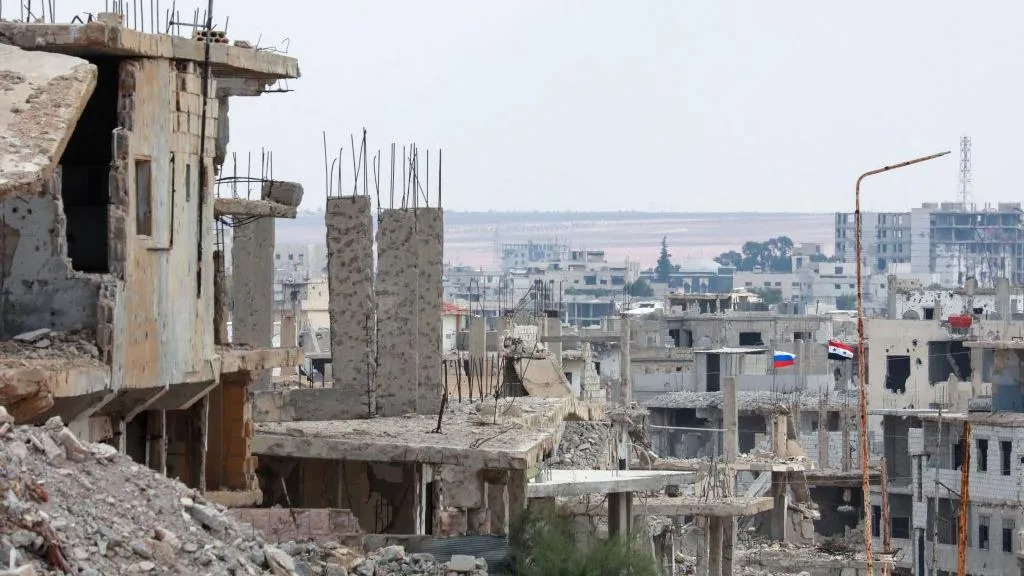
The Significance of Deraa in Syria’s Civil War
Deraa, a symbolic and strategic region in southern Syria, is where the 2011 pro-democracy protests ignited the country’s devastating civil war. Its location near the Jordanian border and proximity to Damascus makes it a vital hub for control.
Recent reports indicate that rebels in Syria have seized more than 90% of the Deraa region, leaving only the Sanamayn area under government control. The Syrian Observatory for Human Rights (SOHR) attributes this victory to coordinated efforts by local factions after intense clashes with regime forces.
This marks a turning point in the conflict, signaling a potential shift in power dynamics as President Assad’s forces appear increasingly stretched thin.
Rebel Advances in Northern and Southern Syria
The rebel offensive has not been limited to the south. In northern Syria, Islamist-led rebels, including Hayat Tahrir al-Sham (HTS), have made significant gains, capturing cities like Hama and reportedly advancing towards Homs.
HTS leader Abu Mohammed al-Jawlani has attempted to rebrand his group, emphasizing its split from extremist organizations like ISIS and Al Qaeda and presenting his forces as protectors of minority communities. However, their rapid territorial gains have sparked fears of further instability.
The loss of Aleppo last week and now Hama has left the Syrian government reeling. Assad’s forces are reportedly demoralized, grappling with low pay, corruption, and diminished support from key allies like Russia and Iran.
Humanitarian Crisis Worsens Amid Rebel Offensive
The ongoing rebel offensive has displaced over 370,000 people, according to UN estimates, exacerbating Syria’s dire humanitarian situation. Civilians in front-line areas face extreme danger, with many unable to reach safer zones due to active conflict.
In Aleppo, a city of two million, critical services such as hospitals, bakeries, and power stations are disrupted or entirely non-functional, further worsening the living conditions for residents.
SOHR reports that over 820 people, including 111 civilians, have been killed since the offensive began last week. The UN Secretary-General Antonio Guterres has called for an immediate de-escalation and urged international stakeholders to facilitate peace talks.
Regional and Global Reactions to Syria’s Civil War Escalation
The rebel advances have drawn mixed reactions from regional powers. Turkey, a longtime supporter of some Syrian opposition groups, appears to have tacitly approved the offensive, while President Recep Tayyip Erdogan continues to push for a political resolution with Assad.
Meanwhile, Russia and Iran, Assad’s key allies, are facing challenges in providing military support. Russia’s focus on the Ukraine conflict and Iran’s weakened regional influence due to Israel’s military actions against Hezbollah have reduced their capacity to prop up Assad’s regime.
The international community is increasingly alarmed. The U.S. State Department has urged American citizens to leave Syria, citing worsening security conditions, while Jordan has closed its border with Deraa, highlighting the broader regional implications of the conflict.
Conclusion
The fall of Deraa and other key regions underscores the fragility of Assad’s regime and the continuing volatility of the Syrian civil war. As rebel factions consolidate control and humanitarian crises deepen, the world watches anxiously, hoping for a resolution to a conflict that has already claimed over 500,000 lives.
Internal and External Links
- Internal Link: Kenkou Land
- External Link: BBC Syria Coverage





